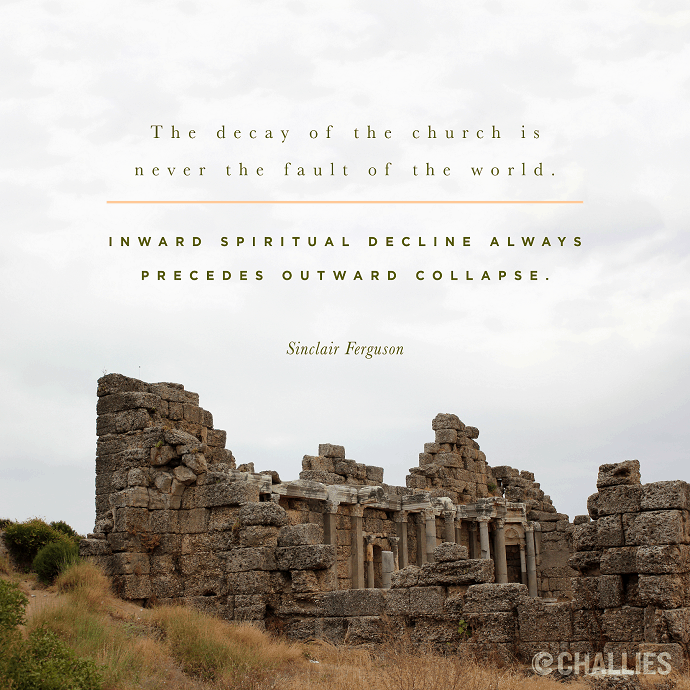Category Archives: Church
THE DECAY OF THE CHURCH
 HT: Tim Challies
HT: Tim Challies
ROMAN CATHOLIC SEX ABUSE SCANDAL
There are many reasons I am not a Roman Catholic, but one certainly is the pervasive, historic, and systemic secrecy. Many examples could be offered. For example, the secrecy of the curia coupled with the condescending clericalism I’ve seen firsthand from priests in spite of what Vatican II says about learning from the laity are just a few.
It stretches credulity to think the Roman Catholic church can properly handle the ongoing (that word is key) sex abuse given the Roman Catholic’s long and problematic history.
And for the record, I taught in Poland and know many dynamic Christians who are in the Roman Catholic church. I just think the overall system is badly broken and lacks the proper theology in doctrine, leadership, and praxis to make things right.
There are similar, but not identical reasons that I’m not Baptist. Though I am sympathetic to Baptist theology, and though the Southern Baptist Convention is not as secretive as the curia, there is much that still gives me concern.
GODSPEED!
Thought-provoking!
WHY SHOULD THE DEVIL HAVE ALL THE GOOD MUSIC?
This interview just went live:
PASTORS LOOKING FOR A CHURCH…
Over the years I have read hundreds of résumés. Actually, it is probably more than that. In any case, between interviewing many people on radio and TV, I have also given input to some churches on pastoral searches. I have evaluated dozens of résumés for a pastoral position. Here are a few things which you may want to share with a friend who is applying for a pastoral position:
*First impressions are huge. I was amazed by how poorly several of the résumés looked. The lack of any attention to aesthetics was shocking. I am not advocating lots of fancy stuff. I am saying that using Courier font and inconsistent borders is not quite passing muster.
*The lack of good writing was painful to see. Poor writing for someone going into a preaching ministry is troubling.
*The word passion is way overused. When I see someone has a “passion” for this or that, I grow impatient. I beg pastors to use some other word.
*Family is listed as hobby and many times not even the first one! Some put family under a category called “interests,” but the same problem remains. I have seen too many put gardening and golf or reading and travel on the same list as family.
*No reason is given for leaving a particular church. One candidate who was candid about the reason for leaving his previous position was put at the top of my pile.
*Stop using trivialities, sloganeering, platitudes, and playing to the crowd. Since this last church I helped leans toward dispensationalism it was painful to read the pandering descriptions of how committed some candidates are to this particular system of theology.
*No references given from previous church.
*Stop saying the predictable “my wife is the most beautiful and my children are simply amazing.”
*Dates of experience have gaps and these are not explained.
GOOD CHRISTIANS, GOOD HUSBANDS?
A good review of a book I know pretty well!
CLEAR AND COURAGEOUS CATHOLIC CONSCIENCE
Important piece no matter your religious affiliation.
PROTESTANT REFORMATION
“So deeply rooted in our hearts is unbelief, so prone are we to it, that while all confess with the lips that God is faithful, no man ever believes it without an arduous struggle.”
John Calvin
“For what is asserted without the Scriptures or proven revelation may be held as an opinion, but need not be believed.”
Martin Luther
“If there is any sense remaining of Christian civilization in the West, this man Luther in no small measure deserves the credit.”
Roland Bainton
WHERE’S WALDO?
My new essay on Ralph Waldo Emerson:
